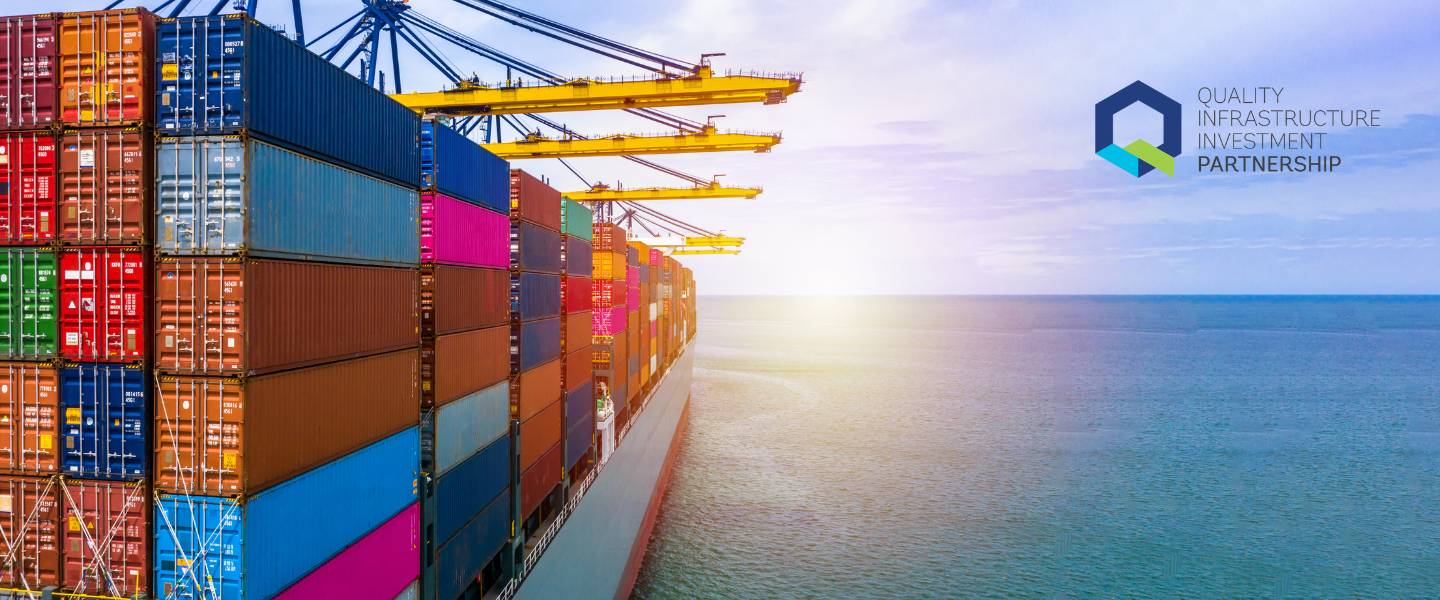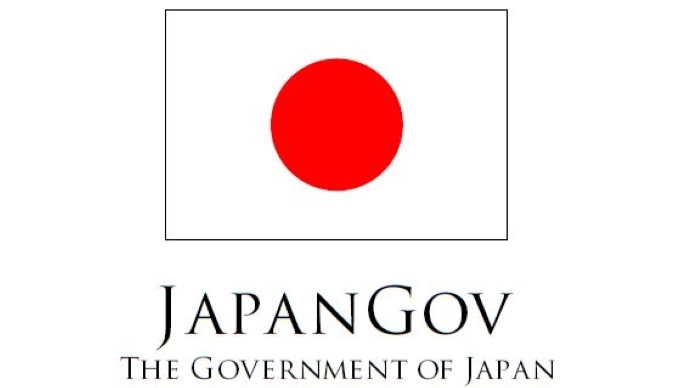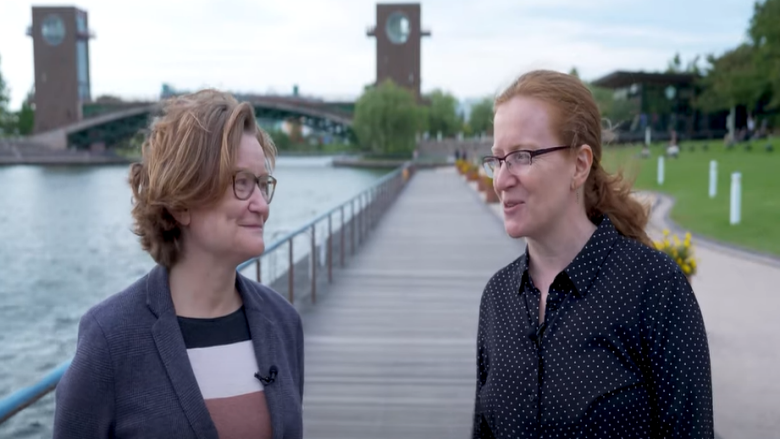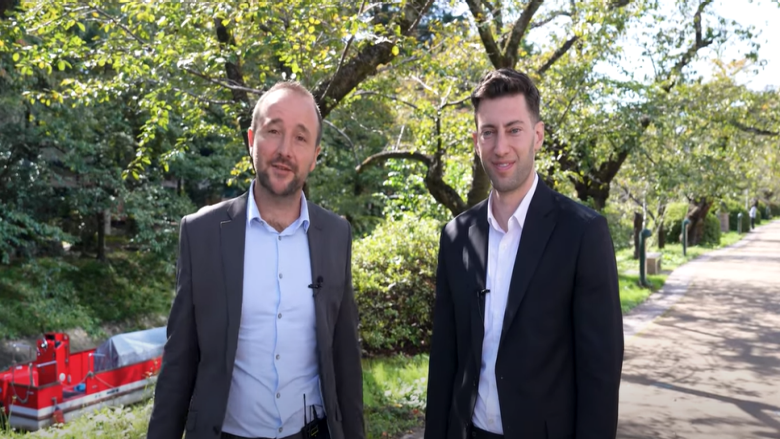
Advancing green, resilient, and inclusive development
Demand for sustainable, quality infrastructure is strong and growing. The QII Partnership between the World Bank and Japan incorporates QII Principles into World Bank infrastructure projects. Its 2023 Annual Report provides a comprehensive overview of the accomplishments of the QII Partnership since its inception in 2016 and demonstrates how the QII Principles are being applied in infrastructure projects across the globe.
An estimated 1 in 6 people experience significant disability, making it essential to consider accessibility when planning, financing and building infrastructure. Japan and the World Bank are providing leadership to create built urban environments where everyone can thrive.
The World Bank and the government of the Democratic Republic of the Congo (DRC) are working on a project to improve transport, urban services, and infrastructure resilience in Kinshasa, the capital. A grant from the QII Partnership enabled the project to employ flood risk mapping and resilient infrastructure development leveraging Japanese expertise in urban transport.
The World Bank’s Road Maintenance Group project in the Lao People’s Democratic Republic offered road maintenance jobs to women in remote villages, targeting the poorest households. A study supported by the QII Partnership provided insights into the project’s impacts and offered recommendations on how better to integrate social inclusion and gender equality in future programs.
Women cross-border traders in Tajikistan confront disproportionate challenges in their businesses compared to their male counterparts. The QII Partnership provided a grant to incorporate gender-responsive practices into Tajikistan’s Customs Service and strengthen the capacity of women entrepreneurs involved in cross-border trade.
Big Data is making waves in urban transport planning. In Maputo, Mozambique, the World Bank collaborated with the University of Tokyo to use mobile phone data to estimate traffic demand in real time. This innovative approach is helping policymakers make informed decisions and plan for a more efficient and inclusive transportation system. Discover how the QII Partnership is supporting these efforts.
Performance-Based Contracts (PBCs) are revolutionizing road construction by emphasizing long-term efficiency and quality. Read the discussion on the advantages of PBCs over traditional road construction contracts.
The World Bank is helping Yemen restore critical urban infrastructure and services resilient to climate challenges. Learn how the QII Partnership helped lay the foundation for climate adaptation in 16 Yemeni cities.
Jane Jamieson, Program Manager of the QII Partnership, explains what the QII Principles are and why they are important for building sustainable, resilient infrastructure.
Updating to modular bridges in Solomon Islands offers an opportunity to increase climate resilience and safety for rural communities.
The government of Japan and the World Bank are working with developing countries to boost resilience in infrastructure projects.
Yemen's cities are highly vulnerable to the impacts of climate change. Learn how the World Bank is helping the country make its urban centers more climate resilient.
Quality infrastructure investment (QII) helps build human, natural, and physical capital while promoting good governance, equity, and sustainability. The QII Partnership, a joint initiative of Japan and the World Bank, is working to support sustainable infrastructure investment.
A new knowledge exchange platform, UKEP, was launched in March 2022 with support from the QII Partnership and ESMAP. It will help stakeholders in the power sector—including utilities, energy sector institutions, regulators, system operators, the private sector, and World Bank teams—identify best practices, improve operational efficiencies, stimulate businesses, and accelerate technological innovation.
Isn’t achieving high-quality growth a goal of infrastructure investment? The Principles for Quality Infrastructure Investment (QII) propose inclusive, resilient decisions to affect the economy, environment, and society—central now to building back better from COVID-19.
Jane Jamieson, Program Manager of the QII Partnership, explains what Quality Infrastructure Investment is and how it contributes to sustainable development.
Infrastructure is profoundly connected with—and drives—development. Find out how the Quality Infrastructure Investment principles were successfully applied in the Japanese cities of Toyoma and Fukuoka.
世界では、推定6人に1人が重大な障がいを有しており、インフラ計画、資金調達、建設の段階で、インフラの利用のしやすさなど利便性について配慮することが不可欠です。かかる中、日本と世界銀行は、誰もが活躍できる都市環境をつくるため、リーダーシップをともに発揮しています。
持続可能な開発目標(SDGs)の達成にあたり、インフラは中心的な役割を担っています。世界銀行と日本政府が連携し、強靱性、包摂性、持続可能性を兼ね備えたインフラ投資及び経済成長に資する「質の高いインフラ(QII)パートナーシップ」の取組みをご紹介します。
気候変動現象に対して脆弱なイエメンの都市インフラに対して、世界銀行は都市における重要インフラやサービスが気候変動に対応できるよう支援を行なっています。本報告書では、質の高いインフラ投資(QII)パートナーシップの助成を受け、イエメンの16都市が築いてきた気候適応にかかる取組みを紹介します。
ビッグデータの活用は、都市の交通計画に画期的な影響を与えています。世界銀行は東京大学と連携し、モザンビークのマプトにて、携帯電話のデータを活用し、リアルタイムで交通需要の推計を行なっています。本革新的なアプローチにより、政策立案者は当該データをもとに意思決定を行い、より効率的で包括的な都市の交通システムを計画することが可能となりました。本報告書では、こうした質の高いインフラ投資(QII)パートナーシップによる具体的な取組みをご紹介します。
カンボジア政府は、国民の水へのアクセス改善に向け、民間セクターとの連携を行なっています。質の高いインフラ投資(QII)パートナーシップのもと、カンボジアでは水の供給や衛生分野のインフラに対する民間セクターの参加を誘致するとともに、当該セクターに関連する環境や社会課題に対し、自然を基盤とした解決策(Nature-based Solutions:NbS)を活用することに取り組んでいます。
太平洋島嶼国地域の橋は気候変動に対し脆弱であるところ、ソロモン諸島の橋梁をモジュラー式に更新することで、気候変動に対する強靭性を高め、農村コミュニティの安全性を向上させる機会をもたらしています。
日本政府と世界銀行は、途上国とともに、インフラ・プロジェクトの強靭性を高める取り組みを行っています。JICAの武藤めぐみ上級審議役が、世界銀行の幹部とより良い協力関係の促進に向けて意見交換を行いました。
気候変動現象に非常に脆弱であるイエメンの都市部に対し、世界銀行は気候変動への対応策の策定・支援をおこないました。
質の高いインフラ投資(QII)は、グッドガバナンス(優れた統治)、公平性、持続可能性を促進しながら、人的資本、自然資本、物的資本の構築を支援するものです。かかるなか、日本と世界銀行は共同イニシアチブであるQIIパートナーシップを通じ、世界各地で持続可能なインフラ投資を支援しています。
グッドガバナンス、公平性、強靭性、包摂性は、質の高いインフラ投資と持続可能な開発に欠かせません。本稿では、原剛世界銀行日本理事室アドバイザーがより良いインフラ投資に向けた知見を共有します。
世界銀行と日本政府による質の高いインフラ投資(QII)パートナーシップは、QII原則を世界銀行のインフラプロジェクトに普及させるためのグラント支援を行っています。QII パートナーシップの年次報告書概要(2022年度)はこちらをご覧ください。
The Quality Infrastructure Investment (QII) Partnership between the World Bank and the government of Japan provides grant support for incorporating the QII Principles in World Bank infrastructure projects. Read the QII 2022 Partnership Annual Report.
The World Bank Group and the government of Japan established the Quality Infrastructure Investment (QII) Partnership to raise awareness and scale up attention to the quality dimensions of infrastructure in developing countries.
The Quality Infrastructure Investment (QII) Partnership between the World Bank and the government of Japan provides grant support for incorporating the QII Principles in World Bank infrastructure projects. Read the QII 2022 Partnership Annual Report.
In April 2020, the G20 endorsed an action plan for promoting quality infrastructure investment and accelerate efforts to mobilize private sources for infrastructure financing.


